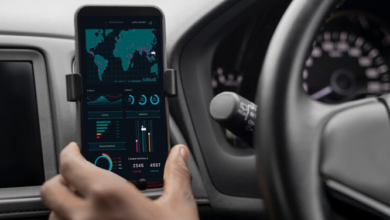The Rise of AI in Music Composition: A Harmonious Revolution

Music has always been a deeply human expression of emotions, culture, and creativity. However, the emergence of artificial intelligence AI that makes music composition is reshaping the way we create, experience, and interact with melodies and harmonies. AI-powered music tools are now capable of generating entire compositions, assisting artists, and even adapting to listener preferences, marking a transformative era in the music industry.
How AI Creates Music
AI music generation relies on machine learning algorithms, neural networks, and deep learning techniques. These systems analyze vast amounts of musical data—spanning genres, styles, and historical compositions—to identify patterns and generate original pieces. Some of the most advanced AI models use Generative Adversarial Networks (GANs) or Reinforcement Learning to improve their outputs over time.
One of the most notable AI-powered tools is OpenAI’s MuseNet, which can compose music across multiple genres and styles. Other platforms like AIVA (Artificial Intelligence Virtual Artist) specialize in generating symphonic compositions, while Google’s Magenta focuses on deep learning in musical creativity.
AI as a Creative Partner
Rather than replacing human composers, AI serves as a powerful tool to enhance creativity. Musicians can use AI-generated melodies as inspiration, refine AI-created harmonies, or experiment with AI-assisted mixing and production techniques. This collaboration allows artists to push musical boundaries and explore novel sounds.
For instance, artists like Taryn Southern and Holly Herndon have integrated AI into their music-making process. Southern’s album “I AM AI” was among the first fully composed with AI assistance, showcasing the technology’s ability to craft compelling and emotive music.
Personalization and Adaptive Music
Beyond composition, AI is also changing the way music is consumed. AI-driven recommendation engines analyze user preferences to curate personalized playlists on streaming platforms like Spotify and Apple Music. Additionally, AI-generated adaptive music is being integrated into video games and virtual experiences, where the soundtrack dynamically changes based on player actions or environmental cues.
Ethical and Artistic Considerations
As AI-generated music becomes more prevalent, ethical concerns arise regarding authorship and intellectual property. Who owns AI-generated compositions—the programmer, the AI, or the musician using it? Additionally, some critics argue that AI lacks the human emotional depth necessary for truly impactful music. However, proponents believe that AI can act as an enabler, augmenting human creativity rather than replacing it.
The Future of AI in Music
AI is poised to become an integral part of music production, innovation, and consumption. From AI-generated film scores to interactive AI musicians that perform live with human artists, the possibilities are limitless. As technology evolves, so will the relationship between humans and AI in the artistic realm, leading to a future where both collaborate in harmony.





